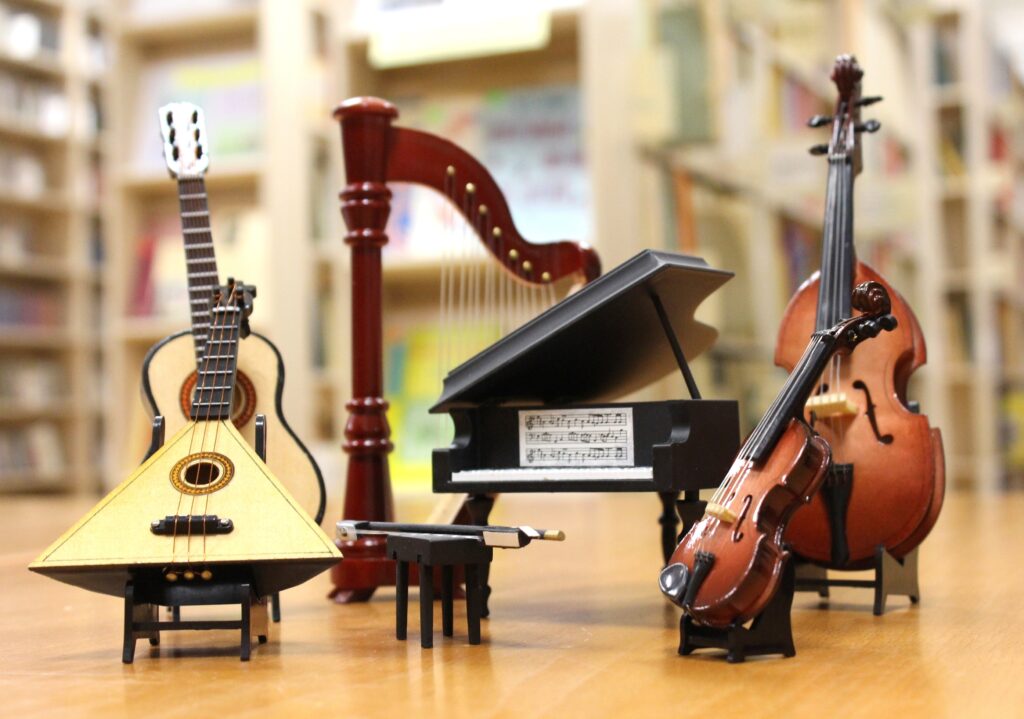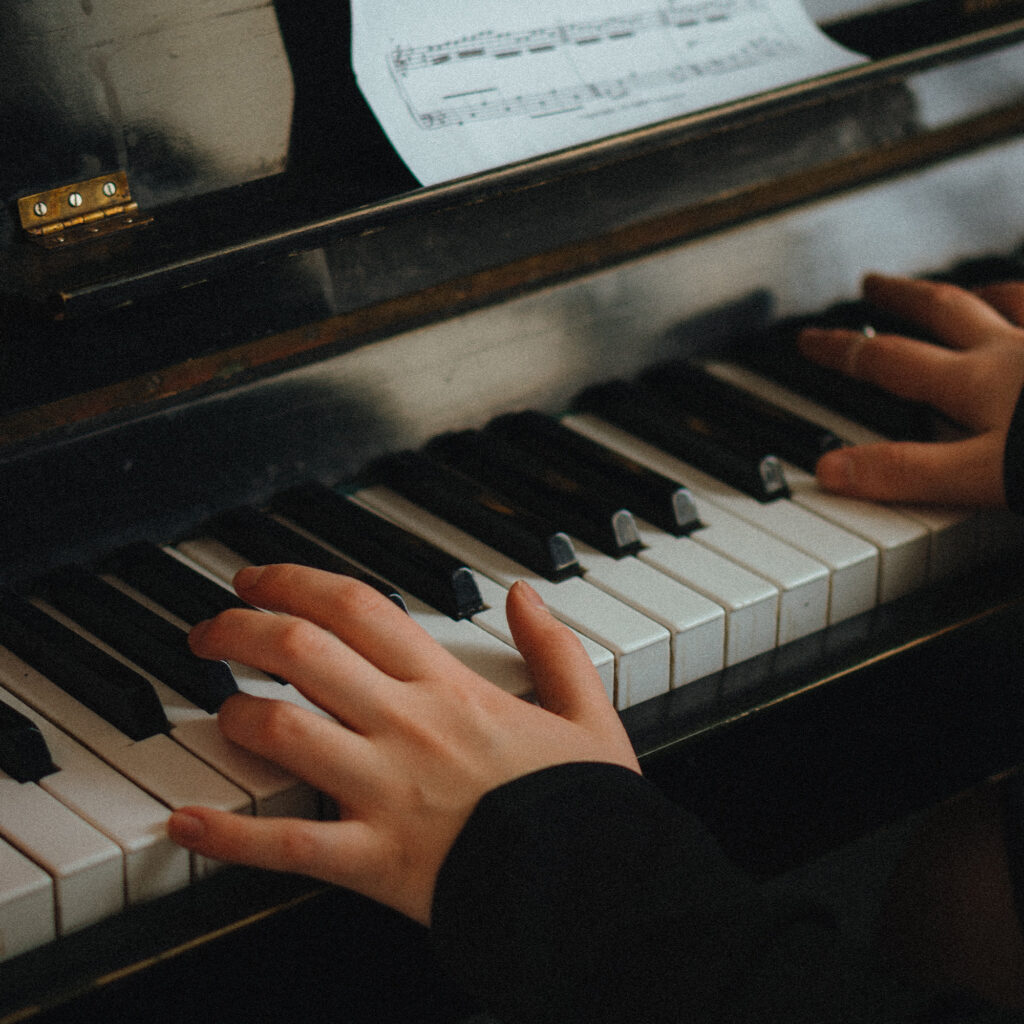Which is easier to learn piano or guitar? This is a question that many people ask when they are trying to decide which instrument to learn.
There is no easy answer, as it depends on several factors, such as your age, musical experience, and natural ability. Read on to find out which is easier to learn piano or guitar, based on several factors.
Is it easier to learn guitar or piano?
While many factors can go into deciding which instrument is right for you, one important consideration is how easy the instrument is to learn. If you’re trying to decide between piano and guitar, which is easier to learn?
Generally speaking, the guitar is going to be easier for adults to learn. This is because it’s a more physically interactive instrument – you need to hold down the strings and form chords with your hands. This can be challenging for people with arthritis or other issues that affect their dexterity.
Piano, on the other hand, is often seen as being easier for children to learn. This is because they don’t have to physically interact with the instrument as much. Instead, they can simply press the keys and make music. This can be less overwhelming for young kids just starting.
So which is easier to learn piano or guitar? It depends on your unique circumstances. If you’re an adult with no prior experience, you may find a guitar to be easier. But if you’re a child or have limited hand dexterity, the piano may be the better choice. Ultimately, the best way to decide is to try both and see which one feels more natural for you.
| Factor | Piano | Guitar |
|---|---|---|
| Learning Curve | The piano has a steeper learning curve due to its requirement of reading sheet music, learning proper finger placement and posture, and coordinating both hands. | The guitar has a more gradual learning curve because of its simpler chord-based playing style. |
| Physical Demands | Piano requires proper posture, hand, and finger positioning to play. Sustained playing can lead to hand and wrist fatigue or injury. | Guitar requires proper hand and finger positioning but allows more flexibility in posture. Sustained playing can lead to finger fatigue or calluses. |
| Musical Versatility | The piano can play a wide range of music genres and styles, from classical to pop to jazz. | The guitar can also play a wide range of music genres and styles, but it’s often associated with rock, country, and folk music. |
| Instrument Cost | A piano can be expensive, with acoustic pianos costing thousands of dollars, and even digital pianos costing hundreds of dollars. | Guitars are more affordable, with entry-level guitars starting at less than $100. High-end guitars can still be expensive but are generally less costly than high-end pianos. |
| Access to Practice | A piano requires a dedicated practice space, and playing loudly may disturb others. | A guitar is more portable and can be played quietly with headphones or amplified for louder playing. |
| Learning Resources | The piano has a wealth of formal instructional materials, from sheet music to online courses to private lessons. | The guitar also has a lot of resources, including online videos, songbooks, and private lessons. It is also easier to learn through imitation, listening to recordings, and copying what is being played. |
How are guitar and piano chords different?
Guitar and piano chords are two distinct ways of voicing musical notes. While both involve the use of combinations of notes to create harmony and melody, how these notes are arranged can be drastically different.
On a guitar, chords are formed by pressing down strings at specific frets and then strumming or picking the strings. This allows for more complex shapes and patterns than what is usually found on a piano, as well as greater flexibility when it comes to creating different chord voicings.
For example, a guitar player can form an A minor chord with just one finger, whereas on a piano you would need to press three keys (A, C, and E) at once to play the same chord.
Piano chords work differently since they rely on playing multiple keys simultaneously to form chords. This requires more precision as each key needs to be pressed with exact timing for the chord to sound correct.
Additionally, piano players have access to far more notes than what is available on a guitar fretboard; this gives them access to more intricate harmonic progressions and complex sounds that can’t be achieved using a guitar.
Do piano and guitar play in the same key?
Piano and guitar can both be played in the same key, although there are some differences in how they approach it.
On a piano, playing in a key involves hitting specific keys to create the desired harmonic effect. This is different from playing in a guitar key, which involves forming chords on the fretboard with your fingers. The notes of each chord will correspond to the specific key you are playing.
The difference between playing the piano and a guitar key lies in the range of sounds that can be produced. While a piano allows for more precision and complexity when it comes to creating harmonies, the sound produced by a guitar is usually more limited due to its smaller number of strings.
Additionally, guitars generally have fewer note choices than pianos so they tend to be less versatile when it comes to creating complex melodies.
When playing music with both instruments together, it’s important to take into account their respective ranges and capabilities.
For instance, if one musician is playing an E major chord on the guitar while another is hitting an F major chord on the piano, then both instruments must play within their respective scales (E major for guitar and F major for piano) for them to sound harmonious together.
Why is the sound produced by a piano and guitar different?
The sound produced by a piano and guitar differs greatly due to the instruments’ different structures, techniques, and capabilities. A piano produces sound using a series of weighted hammers hitting strings, while a guitar produces sound through the vibration of its strings when plucked or strummed.
A piano’s range of notes is limited to 88 keys, whereas a guitar typically has over 200 possible notes depending on the type and number of frets.
Additionally, guitars can be tuned in multiple ways to give them unique tonal qualities. This gives players more freedom when it comes to creating different sounds and musical styles compared to pianos which are limited in this sense.
The physical structure of each instrument also helps create distinct sounds; pianos have heavily weighted strings that produce a bright, powerful tone while guitar strings are lighter and create a softer, mellower tone.
Does learning piano make you better at guitar?
Learning piano can certainly help you become better at guitar. Knowing the basics of chord progression and music theory will give you a greater understanding of how to create a pleasing melody on either instrument.
Additionally, learning the basics of piano technique such as finger placement and hand positioning can help improve your guitar-playing skills.
The piano also gives you access to a much broader range of notes than what is typically available on a guitar fretboard. This can help you develop a better ear for pitch and allow you to create more complex chords and melodies when playing the guitar.
Similarly, learning how to use the sustain pedal on piano can help improve your sense of timing on guitar since it allows you to hold notes for longer periods.
However, it’s important to keep in mind that each instrument requires its own set of techniques for you to get the most out of it. While some skills may transfer between instruments, mastering one does not necessarily mean that you’ll be able to play the other just as well.
Can a guitarist play piano easily?
A guitarist can learn how to play the piano, but it will take time and effort.
It can be difficult for guitarists used to playing chords with one hand to adjust to pressing several keys simultaneously on the piano; this requires more precision in terms of timing as each note must be pressed at the same time for the chord to sound correct.
Additionally, pianists have access to far more notes than what is available on a guitar fretboard; this gives them access to more intricate harmonic progressions and complex sounds that can’t be achieved using only a guitar.
Those looking to make the transition will need patience, practice, and an understanding of music theory fundamentals such as scales and intervals.
Additionally, it’s important to keep in mind that different musical styles may require different approaches; for example, classical music on the piano focuses heavily on precise finger dexterity while jazz tends to rely more on improvisational skills when playing guitar.
What is a more expensive piano or a guitar?
Generally speaking, pianos tend to be more expensive than guitars. This is due to higher manufacturing costs associated with making pianos; which require more intricate mechanical parts and craftsmanship to produce a quality instrument.
Guitars, on the other hand, can range in cost from relatively inexpensive models made of plastic or composite materials up to professional-grade instruments crafted from high-end woods like mahogany or rosewood.
The type of guitar (acoustic vs electric) will also affect the cost; electric guitars typically require additional components such as an amp or effects pedals which can increase the price significantly.
When comparing prices between two similar instruments, it’s important to consider what each one offers in terms of features and sound quality; for example, an acoustic guitar might be cheaper than an electric one but lack many of its features such as pickups or tone controls.
Piano vs. Guitar: How They Compare?
Now that we’ve looked at which is easier to learn piano or guitar, let’s compare them in some other key areas. This will help you get a better sense of which instrument is right for you.
Simplicity of Layout
One important consideration when deciding which instrument to learn is how simple or complex the instrument is. How easy is it to find the notes? Is the layout intuitive?
The guitar has a very simple layout. The strings are laid out in a linear fashion, which makes it easy to find the notes you’re looking for. The fretboard is also easy to understand, making it a great choice for beginners.
Piano, on the other hand, has a more complex layout. The keys are arranged in a curved fashion, which can be confusing for beginners. Additionally, there are two different clefs (treble and bass) that you need to learn. This can make piano more challenging for beginner musicians.
Difficulty Level of Techniques
When it comes to the difficulty level of techniques, the guitar is the easier instrument to learn. This is because you don’t have to use your hands in as many different ways as you do when playing the piano. With guitar, you simply need to hold down the strings and form chords.
Piano, on the other hand, is a more complex instrument. You need to use your hands in a variety of ways to play all the different notes. This can be difficult for beginner musicians.

Self-Taught Vs. Lessons
Finally, let’s compare the two instruments in terms of self-taught vs. lessons. Which is easier to learn on your own? Which instrument do you need lessons for?
The guitar is a great choice for self-taught musicians. Even if you’ve never played an instrument before, you can probably figure out how to play some basic chords on your own. You can also find a wealth of resources online or in guitar stores that can help you learn the basics.
Piano, on the other hand, is more difficult to learn on your own. Unless you have prior experience playing another musical instrument, you’ll probably need to take piano lessons to learn how to play. This is because the piano is a more complex instrument, and the notes are arranged in a non-linear fashion.
Final Verdict
So which is easier to learn piano or guitar? As you can see, there are pros and cons to both instruments. Ultimately, the best way to decide is to try both and see which one feels more natural for you. If you’re an adult with no prior experience, you may find a guitar to be easier. But if you’re a child or have limited hand dexterity, the piano may be the better choice.





